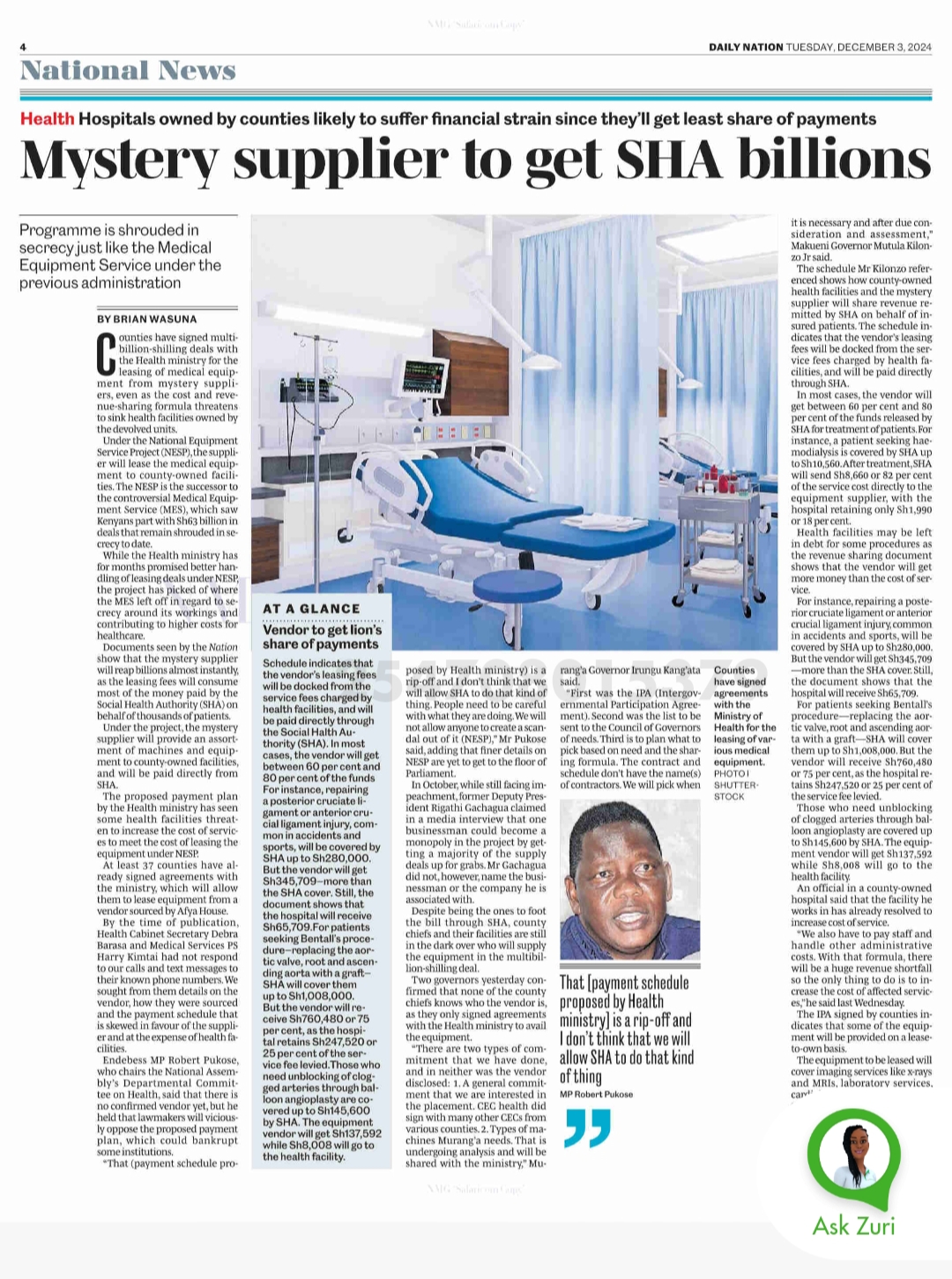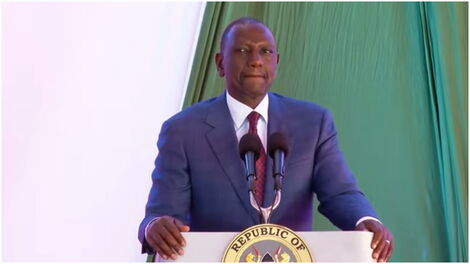The Health Ministry has come under fire for a shady multi-billion-shilling medical equipment leasing deal that critics claim is yet another avenue for massive looting under President William Ruto’s administration.
The National Equipment Leasing Project (NESP), shrouded in secrecy, has handed a lucrative Sh845.7 billion annual contract to a mysterious supplier, SHA, whose identity remains concealed from public scrutiny.
This deal echoes the controversial Medical Equipment Service (MES) project under the Jubilee regime, which was widely criticized for enriching unknown entities at the expense of county hospitals.
Once again, counties are set to suffer as most of the funds will flow directly to SHA while hospitals are left to operate with a pittance.

Ministry of Health CS Deborah Mulongo. Photo: Citizen Digital Source: Facebook
Of the Sh845.7 billion allocated annually, hospitals will receive a meagre Sh66.7 million—just 8 percent—for essential supplies like drugs, beds, and reagents.
Meanwhile, SHA will walk away with a staggering Sh779 million. County governors have warned that such a skewed financial arrangement could bankrupt counties, leaving health facilities starved of critical resources.
Endebess MP Robert Pukose did not mince words, branding the project a blatant rip-off and calling for an investigation into SHA’s ownership.
“People need to find out who SHA is and who owns it. This is looting in plain sight, just like the MES scandal. We cannot allow this government to continue plundering public resources,” Pukose said.

The Health Ministry’s refusal to disclose details about SHA and its apparent lack of accountability have fueled speculation about corruption at the highest levels of government.
Critics argue that this administration has repeatedly demonstrated a troubling disregard for public funds, with procurement processes seemingly designed to benefit shadowy individuals.
President Ruto’s government, already tainted by accusations of widespread graft, appears unmoved by the outcry.

William Ruto delivers a keynote speech during a past event. Photo: Tuko Source: Instagram
Observers warn that if such wasteful spending is allowed to persist, the public healthcare system will collapse, and taxpayers will continue to foot the bill for unbridled theft.
As pressure mounts, Kenyans are demanding answers about who truly benefits from this scheme and why accountability remains elusive in the corridors of power.



